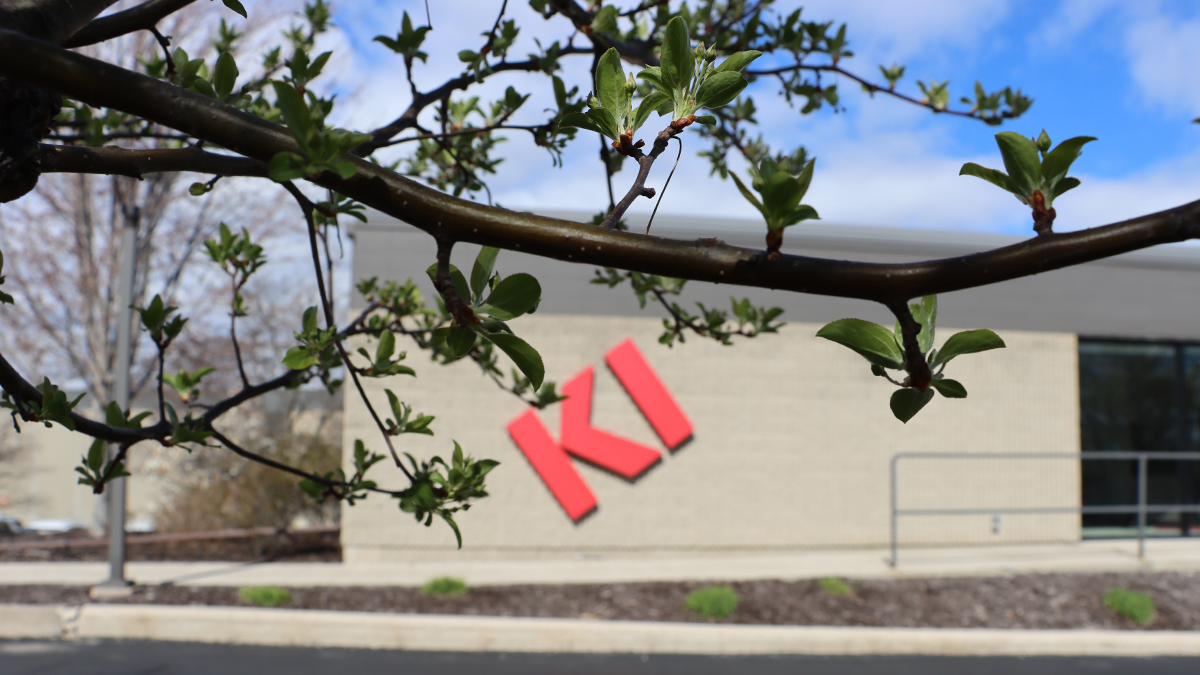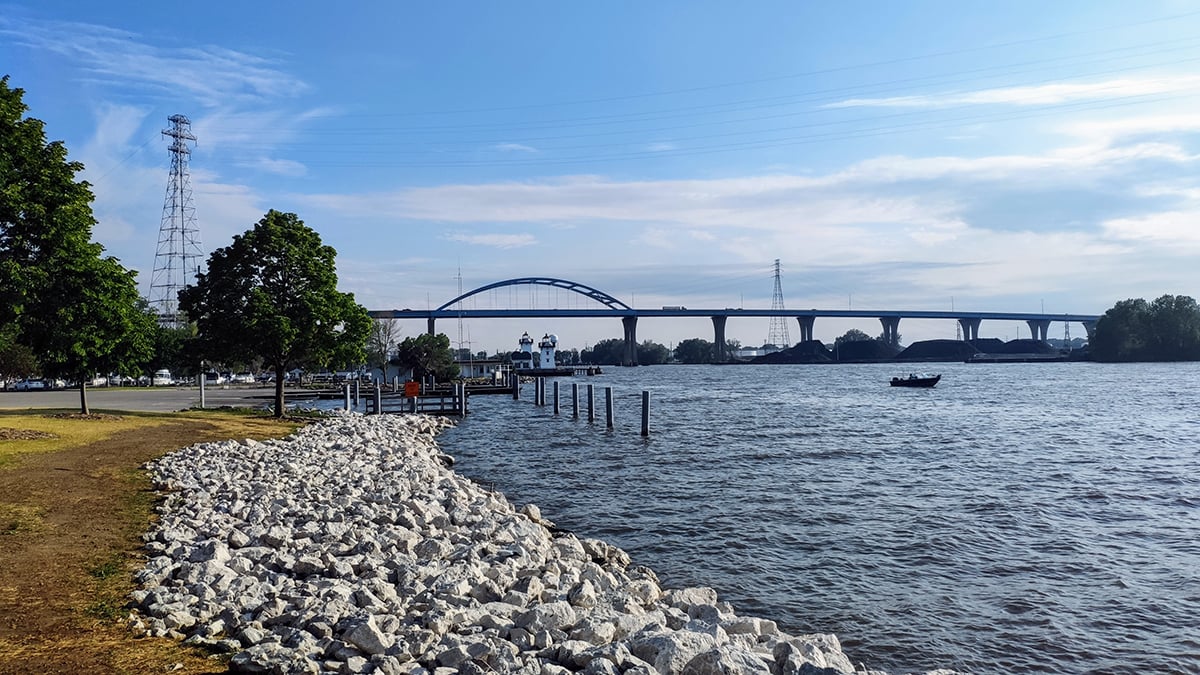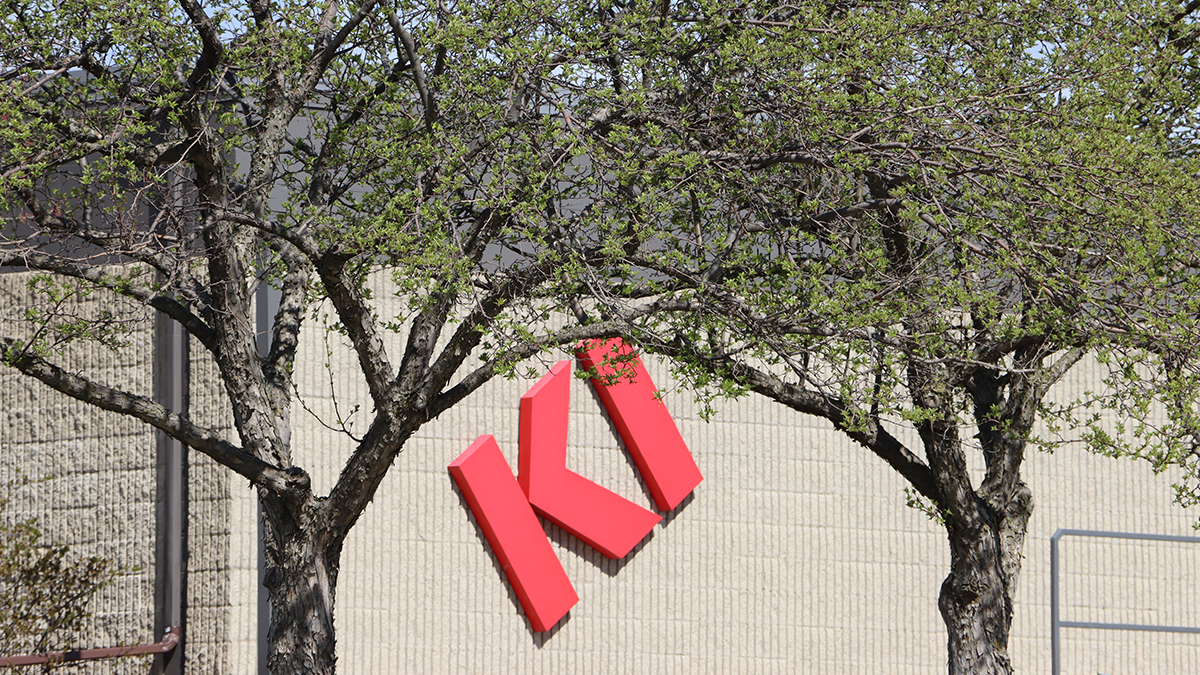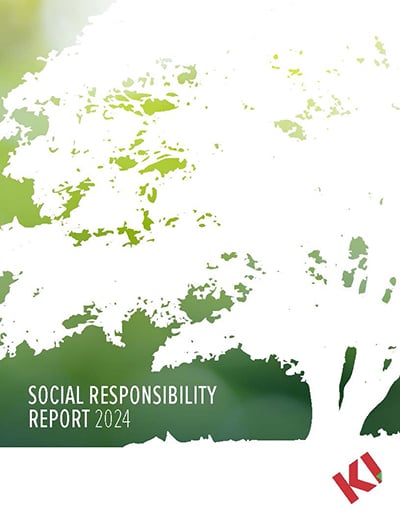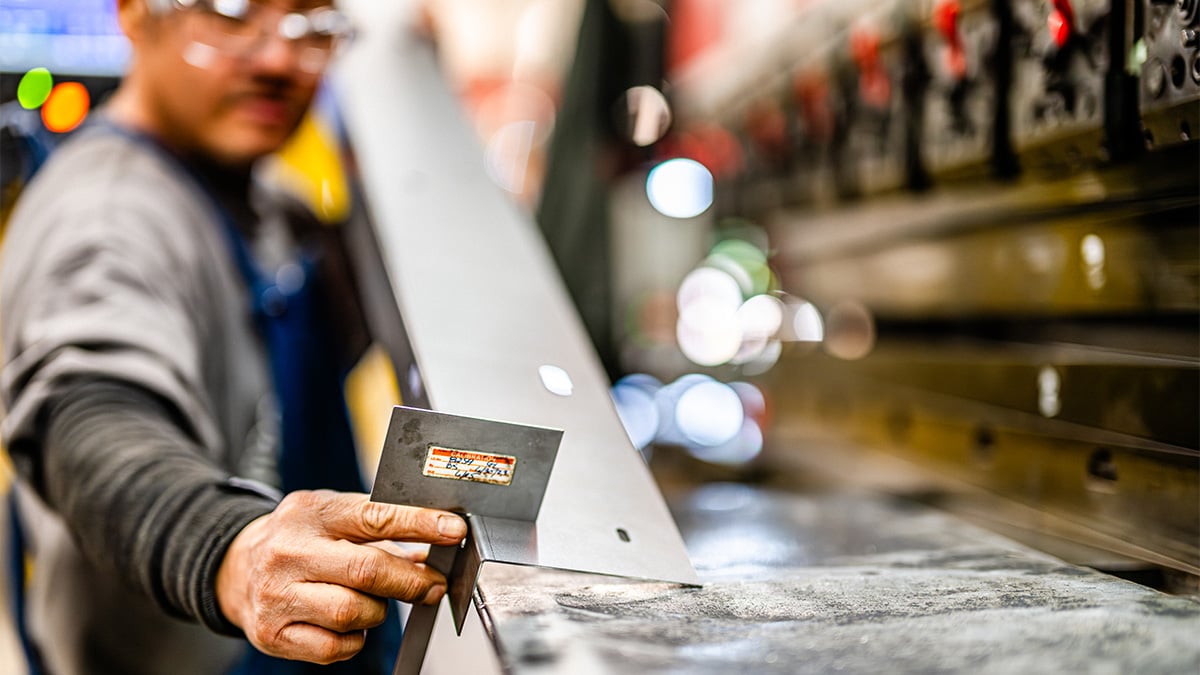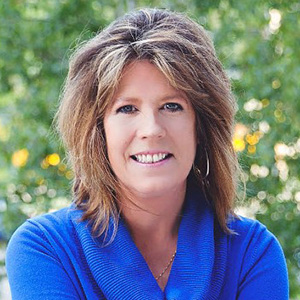In honor of Earth Month, we’re sharing a look at the continued progress KI made throughout 2024 in our journey toward sustainability, corporate responsibility, and global stewardship.
Sustainability is built into everything we do at KI—from the way we design and manufacture our products to how we support our customers, employees, and communities—and we’re focused on creating long-term value with a lighter environmental footprint. Every year, we push ourselves to do better, finding smarter, more responsible ways to make an impact that lasts.
Explore the highlights from our most recent Corporate Social Responsibility report below — a snapshot of how purpose and progress came together in 2024.
Our 2024 Impact At-A-Glance
reduction in greenhouse gas emissions
pounds of material kept out of landfills
reduction in total water use
of solar energy redirected to the power grid
sustainable product certifications earned
trees planted globally
Decreasing Greenhouse Gas Emissions by 15.3%
In 2020, we set ambitious goals: reduce GHG emissions and energy use by 25% by the end of 2025 (compared to a 2017 baseline). In 2024, we achieved a 15.3% reduction in emissions and lowered our energy usage by 13.7%.
We made these strides through targeted investments — from upgraded equipment across our facilities to smarter energy-saving strategies and more efficient building envelopes. Our long-term trend continues in the right direction, and we’re on track to meet our 2025 targets.
Smarter Water Use for Long-Term Impact
Water is an essential part of the manufacturing process. At KI, we monitor, manage, and reduce our water usage year over year to ease the strain on local water systems and preserve resources for the future. Since 2020, we’ve reduced our total water usage by 5.7% by optimizing processes, recycling water, and installing water-efficient technologies across our facilities. These changes support long-term water sustainability while helping us operate more efficiently.
Redirecting 32.9% of Solar Power to the Grid
Our design and development center continues to lead by example. Powered by nearly 500 rooftop solar panels, the facility offset 100% of its electricity usage last year — and returned nearly a third (32.9%) of its captured energy to the grid for shared use.
We also partnered with our utility provider to reduce demand during critical peak times, cutting energy usage and saving more than $53,000 in the process.
195 Products Earned Sustainability Certifications
In 2024, 195 of our product families achieved the highest LEVEL® certification, which evaluates environmental and social responsibility across the entire product life cycle. The LEVEL certification process is completed by a third-party certifier that evaluates products against criteria laid out by BIFMA in accordance with ANSI procedures, including whether a product is sourced and manufactured in an environmentally conscious and socially responsible manner. Our LEVEL-certified products allow architects, designers, and customers to easily identify the most sustainable furniture in our product portfolio.
Beyond certifications, we apply closed-loop design thinking to all KI products. This means creating components that are easy to disassemble, repair, and recycle — improving product longevity while preparing them for reuse when the time comes. Our team is continuously working to refine materials and processes, so our products are as sustainable as they are functional.
4,701 Trees Planted Across 8 Countries
Through our partnership with PrintReleaf, KI offsets its paper usage by replanting trees in regions that need them most. Since the program’s inception in 2017, we’ve planted 4,701 trees — including more than 1,000 just last year — across forests in California, Canada, Ireland, Dominican Republic, Brazil, India, Mexico, and Madagascar.
It’s one small but meaningful way to replenish what we use and invest in natural regeneration.
Looking Ahead for Corporate Social Responsibility
We’ve made progress. We’re staying the course. And we’re committed to doing even more — for people, for communities, and for the planet.
Our approach to corporate responsibility is simple: keep improving, stay accountable, and design with long-term impact in mind. Every decision we make is an opportunity to build smarter, work cleaner, and support those we serve — today and into the future.
Explore our full 2024 Corporate Social Responsibility Report linked below to see how we’re turning progress into long-term impact.
